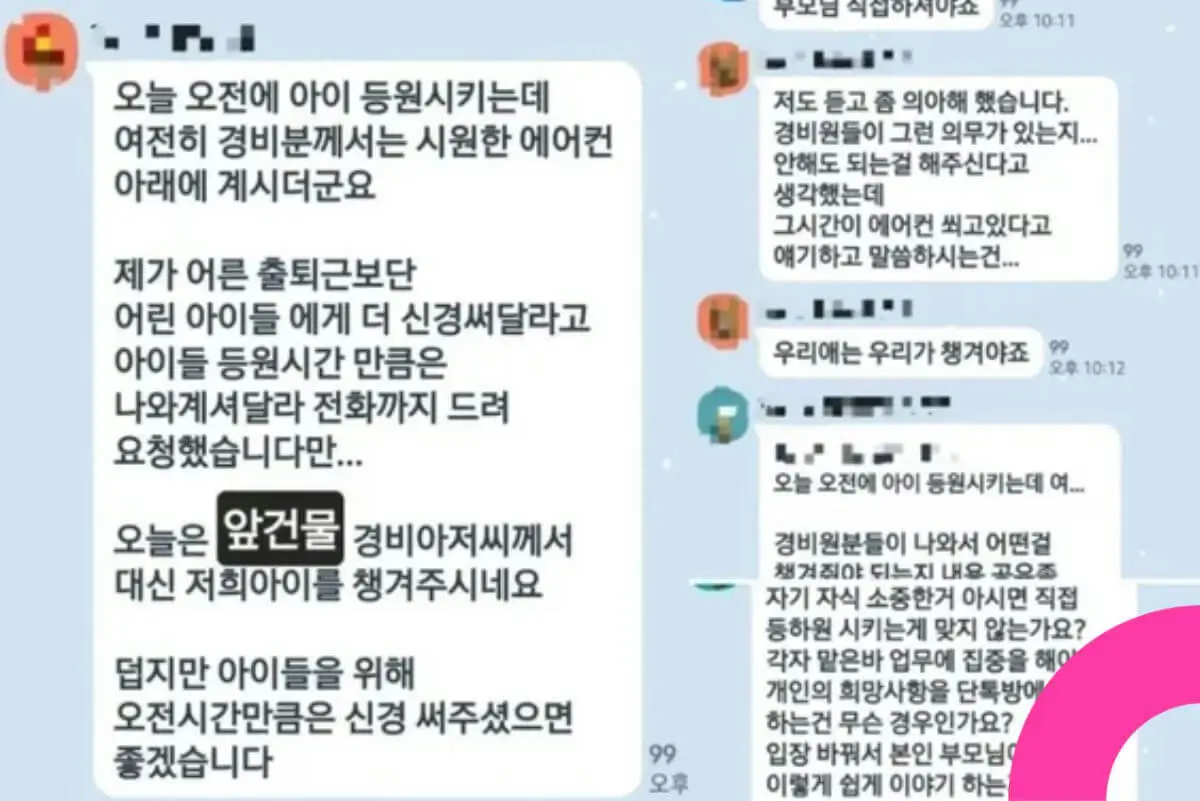On July 9, a post surfaced in an online community sharing screenshots from a group chat among residents of a Seoul apartment complex. In the conversation, one resident expressed frustration over seeing a security guard staying indoors near an air conditioner while children were arriving for school.
Recently, South Korea has endured an intense heatwave, with daytime temperatures in Seoul nearing 38°C. The parent stated, “This morning, while taking my child to school, the security guard was still inside enjoying the cool air. I had even called to request that the guards pay more attention to the children during drop-off hours.” The resident went on to say another guard from a nearby building had looked after their child instead.
The comment sparked a strong reaction from other residents, many of whom disagreed with the complaint. One person responded, “It’s fine to make a polite request to the guards, but staying in an air-conditioned space in this heat isn’t wrong. If they help, it’s appreciated but it’s not their obligation.”
Another remarked, “If you value your child’s safety so much, you should personally take responsibility for drop-off. It’s inappropriate to treat your personal expectations as if they were mandatory duties for others.”
The tone escalated as one resident criticized the original poster harshly: “If it were your own elderly parent, would you talk this way? We all need to follow basic rules and respect each other. I’m also a parent, and frankly, your comments are nauseating.”
Most group members sided with the guards, echoing sentiments such as, “Parents should handle their own kids,” and “Security guards have no obligation to supervise children during drop-off.”
The incident has since sparked a broader conversation about entitlement, responsibility, and respecting service workers amid extreme weather conditions.

